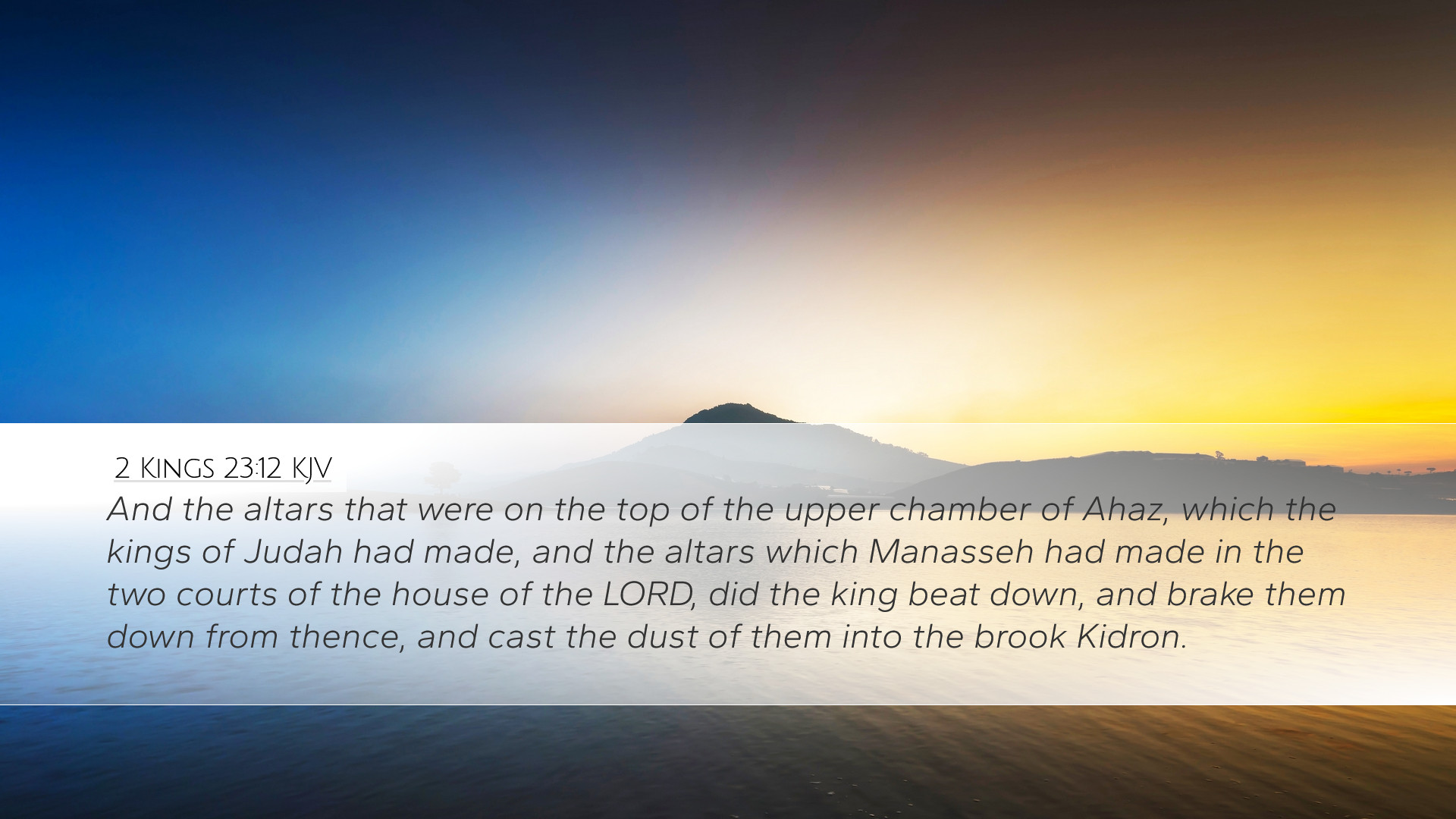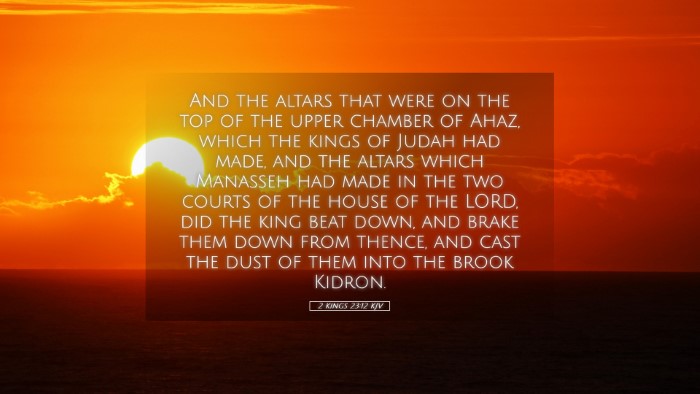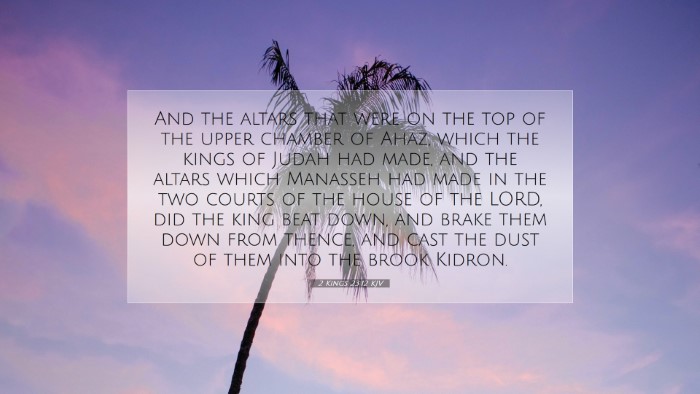Commentary on 2 Kings 23:12
2 Kings 23:12 is a pivotal verse that underscores the earnest religious reforms enacted by King Josiah during his reign. This verse reads:
“And the altars that were on the roof of the upper chamber of Ahaz, which the kings of Judah had made, and the altars which Manasseh had made in the two courts of the house of the Lord, did the king break down, and baked the dust of them and cast it upon the graves of the children of the people.”
Contextual Background
This scripture emerges during a significant moment in Israel's history. Josiah, the last righteous king of Judah, embarked on a zealous reformation aimed at purging Judah of idolatry and restoring the worship of Yahweh. His actions in 2 Kings 23:12 are representative of a wider commitment to cleansing both the nation and religious practice.
Exegesis
The mention of “the altars that were on the roof of the upper chamber of Ahaz” indicates not just the physical act of destruction, but speaks to a spiritual rebuke of past leaders. Each altar represented not only a place of worship but a severe deviation from the worship of the one true God, which is reiterated from the perspectives of various commentaries.
Matthew Henry's Insights
Henry comments on the symbolic nature of the destruction of these altars. He emphasizes that the act of breaking down these places of worship is a clear denunciation of the idolatrous practices that had infiltrated Judah. Henry notes:
“Josiah's zeal in abolishing idolatry showed his commitment to the covenant between God and His people, and he sought to restore true worship.”
Albert Barnes’ Perspective
Barnes elaborates on the significance of these altars, especially those constructed by Manasseh, who was infamous for leading Judah into great sin. Barnes emphasizes that these actions by Josiah served as a necessary step to “returning” to the essence of true worship as laid out in the Mosaic law.
“By destroying the altars, Josiah attempted to remove the very tools of sin, realizing that without such drastic measures, the people could not be reformed.”
Adam Clarke's Commentary
Clarke provides a thorough analysis of the historical implications behind Josiah’s actions. He points out that the altars built by Ahaz and Manasseh were not merely physical structures, but emblems of a spiritual failure that had led the nation astray. He comments on the act of “baking the dust of them” as both a literal and metaphorical act of nullifying their past power.
“The breaking down of these altars was an essential act. Josiah marked with profound significance the end of idolatrous worship in Israel, taking extreme measures to lead the people back to God.”
Theological Implications
Joseph’s actions invite reflection on the nature of repentance and reform. The history of Israel shows a tendency to stray from God's commandments, and Josiah’s reforms serve as a lesson on the importance of returning to the original covenant. The destruction of idols reveals the violent contrast between genuine worship and idolatry, which many theologians view as an ongoing struggle in contemporary spirituality. The altars being cast “upon the graves of the children of the people” illustrate the permanence of their sins and the ultimate judgement that follows.
Application for Today
For pastors, students, and theologians, 2 Kings 23:12 serves as a call to examine our own lives and the influences we permit within our communities. Questions arise regarding what modern “altars” we may need to dismantle in order to maintain true fidelity to God’s commands. Each of these ancient altars, representing sin and deviations from the truth, invites us to consider:
- What practices do we need to confront in our own lives that detract from true worship?
- How can we lead our communities in reconciliation and reform?
- In what ways can the zeal of Josiah be reflected in modern ministry?
Conclusion
As we conclude our examination of 2 Kings 23:12, it becomes evident that Josiah’s actions were not only historical but prophetic for the church today. The fervent desire to restore purity to worship and eradicate idolatry remains a pressing challenge. Engaging with this text encourages ongoing introspection regarding our commitment to divine worship and highlights the necessity of returning to the roots of our faith.


